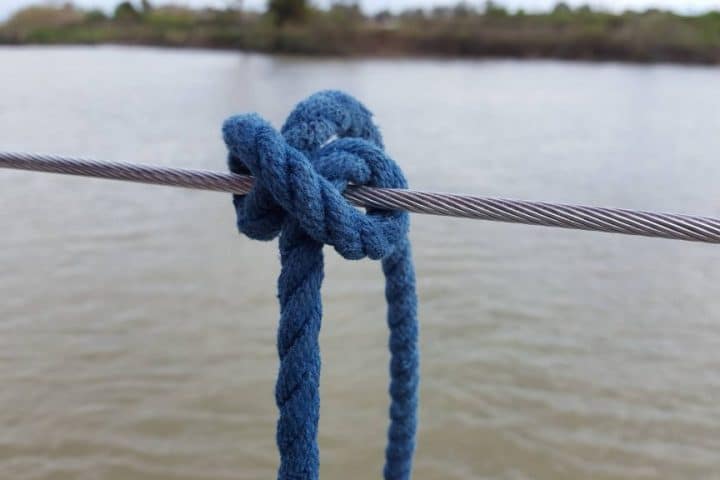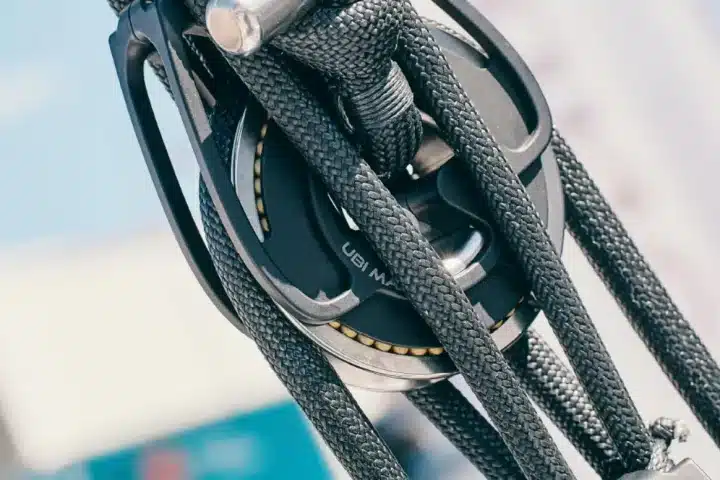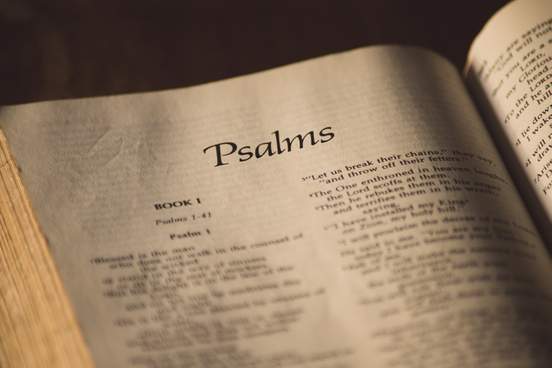- Daily Crossword
- Word Puzzle
- Word Finder
- Word of the Day
- Synonym of the Day
- Word of the Year
- Language stories
- All featured
- Gender and sexuality
- All pop culture
- Grammar Coach ™
- Writing hub
- Grammar essentials
- Commonly confused
- All writing tips
- Pop culture
- Writing tips
a vessel used for private cruising, racing, or other noncommercial purposes.
to sail, voyage, or race in a yacht.

Compare Meanings
Click for a side-by-side comparison of meanings. Use the word comparison feature to learn the differences between similar and commonly confused words.
Origin of yacht
Other words from yacht.
- yachty, adjective
- su·per·yacht, noun
Words that may be confused with yacht
- barge , boat , canoe , cruise ship , sailboat , ship , yacht
Words Nearby yacht
- Yablonovy Mountains
- Yablonovyy Range
- yacht chair
Dictionary.com Unabridged Based on the Random House Unabridged Dictionary, © Random House, Inc. 2024
How to use yacht in a sentence
As City News explained it, the bribes were paid not only in cash but through rugs, antiques, furniture, yacht club fees, boat repairs and more.
In Ashburn, Snyder is always lurking in spirit, even if he is on his 305-foot yacht somewhere in the Aegean.
Driving across country in a gigantic land yacht —with its crushed-velour seats and faux wood siding—was more practical than a two-door hot rod.
Host Jason Moore chats with experts who share tips harvested from their real-life experiences, such as a couple who paid off their $70,000 debt to travel full time and a woman who left her corporate job to work on a yacht .
Until Thursday, when federal agents escorted him off a 150-foot yacht moored in Long Island Sound, the word often used to describe Steve Bannon was “irrelevant.”
Instead the money allegedly was spent on luxury cars and a yacht club membership, among other things.
Loeb owns a $100 million penthouse on Central Park West and a $50 million yacht .
Solaire has set up charging capabilities at a project it built at a yacht club in Massachusetts, for example.
On my way back into town, I walked by the fortress of tents surrounding the harbor, readying for the yacht show.
Newly-minted Londoner, Lindsay Lohan, is currently chilling out on a yacht in Italy.
I heard her say to one of the servants once that my father had been lost on a yacht , and that he was oh, ever such a handsome man.
He owned a 54-ton yacht named the Opal, and attributed the wonderful health he enjoyed to his numerous sea voyages.
Another yacht had started from the old boathouse at about the time our friends and their new-fangled craft got under way.
Caermarthen ordered out his wonderful yacht , and hastened to complain to the King, who was then at Loo.
The yacht had long turned the head of the island and was beating down alongshore in the eastern bay.
British Dictionary definitions for yacht
/ ( jɒt ) /
a vessel propelled by sail or power, used esp for pleasure cruising, racing, etc
short for sand yacht , ice yacht
(intr) to sail or cruise in a yacht
Collins English Dictionary - Complete & Unabridged 2012 Digital Edition © William Collins Sons & Co. Ltd. 1979, 1986 © HarperCollins Publishers 1998, 2000, 2003, 2005, 2006, 2007, 2009, 2012
Scale your content creation with Strategically AI | Talk to us

Navigating the Spelling of Yacht: A Smooth Sailing Guide
The word "yacht" often raises eyebrows when it comes to spelling. This term, synonymous with luxury and leisure on the water, has a spelling that doesn't quite align with its pronunciation, leading many to second-guess themselves. In this article, we'll set sail through the correct spelling of "yacht," providing you with tips and examples to ensure that your writing journey is as smooth as a serene sea.
Understanding Yacht
A yacht is a type of boat or ship that is often used for pleasure, racing, or cruising. Originating from the Dutch word "jacht," which means "hunt," it was originally used to describe light, fast sailing vessels used to chase pirates. The transformation from "jacht" to "yacht" in English is where the spelling complexity lies.
The Spelling Challenge
The main challenge with "yacht" is its unorthodox spelling compared to its pronunciation. The 'ch' is silent, and there's no hint of the 't' in how it's spoken, which can lead to misspellings like "yatch," "yaght," or "yaht."
Tips for Spelling Yacht
- Remember the Dutch origin: The 'cht' is a common Dutch spelling.
- Silent 'ch': The 'ch' in yacht is not pronounced.
- End with 't': Despite not being pronounced, it's always there.
Examples in Context
Using "yacht" in sentences can help reinforce its correct spelling:
- They spent the weekend sailing on a luxury yacht.
- His dream was to circumnavigate the globe in a yacht.
Spelling Yacht Correctly
To ensure you always spell "yacht" correctly, consider these strategies:
- Link to Its Origin : Remembering its Dutch origin can help with the 'cht.'
- Visual Association : Associate the word with an image of a yacht, reinforcing the spelling.
- Create a Mnemonic : Think of "You Always Can Have Tea" (Y-A-C-H-T).
Summary and Key Insights
Remember, spelling "yacht" correctly is all about understanding its origin and unique spelling pattern. It's a word that might not follow the usual rules, but with a bit of practice, it becomes easy to handle.
Frequently Asked Questions
What is a common mistake when spelling "yacht".
A common mistake is spelling it as "yatch," reversing the 'a' and the 't.'
Can "yacht" refer to any boat?
No, a yacht specifically refers to a medium to large-sized boat used for leisure, racing, or cruising.
How can I easily remember the spelling of "yacht"?
Remember the silent 'ch' and the Dutch origin. A mnemonic like "You Always Can Have Tea" can also be helpful.
Why does "yacht" have a silent 'ch'?
The silent 'ch' in "yacht" comes from its Dutch origin, where such spellings are more common.
Is "yacht" spelled differently in other languages?
Yes, the spelling of "yacht" can vary in languages other than English, often aligning more closely with its pronunciation.
Mastering the spelling of "yacht" is like learning to navigate the high seas – it might seem daunting at first, but with the right knowledge and practice, it becomes second nature. Whether you're writing about maritime adventures or luxury travel, getting the spelling right is crucial. And for all your writing needs, from crafting engaging travel blogs to professional content, our expert content writing agency at Strategically is here to help, offering SEO content, unlimited revisions, and more to ensure your writing is as impressive as a sleek yacht gliding over the waves.
How To Spell yacht ?
How to pronounce yacht.
Correct pronunciation for the word "yacht" is [jˈɒt], [jˈɒt], [j_ˈɒ_t].
Definition of yacht
A swift-sailing, light, and elegantly furnished vessel, used either for private parties of pleasure, or as a vessel of state to convey princes, &c., from one place to another.
To sail in a yacht.
Nuttall's Standard dictionary of the English language By Nuttall, P.Austin
What are the misspellings for yacht?
What are similar-sounding words for yacht, what is the present tense of yacht.
- In the present tense, the personal forms of the verb " yacht " are:
- - You yacht
- - He yachts
- - She yachts
- - It yachts
- - They yacht
What is the past tense of Yacht?
- The personal forms of the verb " yacht " in the past tense are as follows:
- 1. I yachted
- 2. You yachted
- 3. He yachted
- 4. She yachted
- 5. It yachted
- 6. We yachted
- 7. You yachted
- 8. They yachted
What is the adverb for yacht?
The adverb form of the word "yacht" is "yachtingly" .
What is the adjective for yacht?
The adjective form of the word "yacht" is "yachting" .
Usage over time for yacht:
This graph shows how "yacht" have occurred between 1800 and 2008 in a corpus of English books.
What is the plural form of yacht?
The plural of the "yacht" can be the " yachts ".
What is the singular form of yacht?
The singular of the "yacht" can be the "yacht".
Synonyms for Yacht:
- aircraft carrier
- cabin cruiser
- fishing boat
Nearby words
- Yacca Podocarp
- yacht chair
- yacht clubs
- Correct spelling for yacht [Infographic] | Spellchecker.net
- yacht - English spelling dictionary
- Yacht | Definition of yacht by Merriam-Webster
- Yacht definition and meaning | Collins English Dictionary
- Yacht | Definition of yacht at Dictionary.com
- Yacht dictionary definition | yacht defined
Infographic

Add the infographic to your website:

Word of the day
Genus pooecetes.
- benus pooecetes
- fenus pooecetes
- g3nus pooecetes
- Spell Check in Excel
- Spell Check in Word
- Outlook Spell Check
- WordPad Spell Check
- Spell Check in PowerPoint
- Spell Check for Mac

- 1.1 Etymology
- 1.2 Pronunciation
- 1.3.1 Derived terms
- 1.3.2 Translations
- 1.4.1 Translations
- 1.5 Anagrams
- 2.1 Etymology
- 2.2 Pronunciation
- 2.4 Further reading
- 3.1 Etymology
- 3.2 Pronunciation
- 3.4 References
- 3.5 Further reading
- 4.1 Etymology
- 5.1 Etymology
- 5.3 References
- 6.1 Etymology
- 6.3 References
- 7.1 Alternative forms
- 7.2 Etymology
- 7.3.1 Declension
- 7.3.2 Derived terms
- 7.4 Further reading
English [ edit ]
Etymology [ edit ]
Circa 1557; variant of yaught , earlier yeaghe ( “ light, fast-sailing ship ” ) , from Dutch jacht ( “ yacht; hunt ” ) , in older spelling jaght(e) , short for jaghtschip ( “ light sailing vessel, fast pirate ship ” , literally “ pursuit ship ” ) , compound of jacht and schip ( “ ship ” ) .
In the 16th century the Dutch built light, fast ships to chase the ships of pirates and smugglers from the coast. The ship was introduced to England in 1660 when the Dutch East India Company presented one to King Charles II, who used it as a pleasure boat, after which it was copied by British shipbuilders as a pleasure craft for wealthy gentlemen.
Pronunciation [ edit ]
- ( UK ) enPR : yŏt , IPA ( key ) : /jɒt/
- ( US ) enPR : yät , IPA ( key ) : /jɑːt/ , /jɑt/
- Rhymes: -ɒt
Noun [ edit ]
yacht ( plural yachts )
- 1897 December (indicated as 1898 ), Winston Churchill , chapter X, in The Celebrity: An Episode , New York, N.Y.: The Macmillan Company ; London: Macmillan & Co., Ltd. , →OCLC : The skipper Mr. Cooke had hired at Far Harbor was a God-fearing man with a luke warm interest in his new billet and employer, and had only been prevailed upon to take charge of the yacht after the offer of an emolument equal to half a year's sea pay of an ensign in the navy.
- 1907 August, Robert W[illiam] Chambers , chapter VI, in The Younger Set , New York, N.Y.: D. Appleton & Company , →OCLC : “I don’t mean all of your friends—only a small proportion—which, however, connects your circle with that deadly, idle, brainless bunch—the insolent chatterers at the opera, [ … ] , the chlorotic squatters on huge yachts , [ … ] , the neurotic victims of mental cirrhosis, the jewelled animals whose moral code is the code of the barnyard—!"
Derived terms [ edit ]
- motor yacht , motoryacht , MY
- sailing yacht , steam yacht , SY
- yacht person
Translations [ edit ]
Verb [ edit ].
yacht ( third-person singular simple present yachts , present participle yachting , simple past and past participle yachted )
- ( intransitive ) To sail , voyage , or race in a yacht .
Anagrams [ edit ]
- Cathy , tachy , tachy- , yatch
French [ edit ]
Borrowed from English yacht , from Dutch jacht .
- IPA ( key ) : /jɔt/ , /jot/ , ( Canada ) /jat/
yacht m ( plural yachts )
Further reading [ edit ]
- “ yacht ”, in Trésor de la langue française informatisé [ Digitized Treasury of the French Language ] , 2012 .
Italian [ edit ]
Unadapted borrowing from English yacht .
- IPA ( key ) : /ˈjɔt/ [1]
- Rhymes: -ɔt
yacht m ( invariable )
- the letter Y in the Italian spelling alphabet
References [ edit ]
- ^ yacht in Luciano Canepari , Dizionario di Pronuncia Italiana (DiPI)
- yacht in Treccani.it – Vocabolario Treccani on line , Istituto dell'Enciclopedia Italiana
Norman [ edit ]
Borrowed from English yacht .
yacht ? ( plural yachts )
- ( Jersey ) yacht
Norwegian Bokmål [ edit ]
From Dutch jacht , via English yacht .
yacht m ( definite singular yachten , indefinite plural yachter , definite plural yachtene )
- “yacht” in The Bokmål Dictionary .
Norwegian Nynorsk [ edit ]
yacht m ( definite singular yachten , indefinite plural yachtar , definite plural yachtane )
- “yacht” in The Nynorsk Dictionary .
Swedish [ edit ]
Alternative forms [ edit ].
yacht c
Declension [ edit ]
- yacht in Svenska Akademiens ordlista ( SAOL )
- yacht in Svensk ordbok ( SO )
- yacht in Svenska Akademiens ordbok ( SAOB )
- English terms derived from Dutch
- English 1-syllable words
- English terms with IPA pronunciation
- English terms with audio links
- Rhymes:English/ɒt
- Rhymes:English/ɒt/1 syllable
- English lemmas
- English nouns
- English countable nouns
- English terms with usage examples
- English terms with quotations
- English verbs
- English intransitive verbs
- en:Watercraft
- French terms borrowed from English
- French terms derived from English
- French terms derived from Dutch
- French 1-syllable words
- French terms with IPA pronunciation
- French terms with audio links
- French lemmas
- French nouns
- French countable nouns
- French masculine nouns
- fr:Watercraft
- French loanwords with irregular pronunciations
- Italian terms borrowed from English
- Italian unadapted borrowings from English
- Italian terms derived from English
- Italian 1-syllable words
- Italian terms with IPA pronunciation
- Rhymes:Italian/ɔt
- Rhymes:Italian/ɔt/1 syllable
- Italian lemmas
- Italian nouns
- Italian indeclinable nouns
- Italian countable nouns
- Italian terms spelled with Y
- Italian masculine nouns
- Norman terms borrowed from English
- Norman terms derived from English
- Norman lemmas
- Norman nouns
- Jersey Norman
- nrf:Watercraft
- Norwegian Bokmål terms derived from Dutch
- Norwegian Bokmål terms derived from English
- Norwegian Bokmål lemmas
- Norwegian Bokmål nouns
- Norwegian Bokmål terms spelled with C
- Norwegian Bokmål masculine nouns
- nb:Watercraft
- Norwegian Nynorsk terms derived from Dutch
- Norwegian Nynorsk terms derived from English
- Norwegian Nynorsk lemmas
- Norwegian Nynorsk nouns
- Norwegian Nynorsk terms spelled with C
- Norwegian Nynorsk masculine nouns
- nn:Watercraft
- Swedish terms borrowed from English
- Swedish terms derived from English
- Swedish lemmas
- Swedish nouns
- Swedish common-gender nouns
- sv:Watercraft
- English entries with topic categories using raw markup
- Mandarin terms with redundant transliterations
- Mongolian terms with redundant script codes
- French entries with language name categories using raw markup
- Requests for gender in Norman entries
Navigation menu
Yacht or yatch?

Correct spelling, explanation: this word comes from the Dutch word jacht , which means hunt . It’s sail- or power-driven vessel, used for racing or for recreation. As you can see, the English spelling is similar to the Dutch one – only -j changes to -y . That’s why the only correct form is yacht , not yatch .
Definition of yacht : noun, a medium-sized sailing boat equipped for cruising or racing. I want to be so rich that I can afford a yacht . Harry was sailing around the world in his yacht .
Collocations with yacht : Some most commonly used collocations include: luxury yacht , motor yacht , racing yacht , royal yacht , and sailing yacht .

Incorrect spelling, explanation: this word is a misspelling. There is no reason to write it like that. When we look at its etymology, we can clearly see that -ch should appear before -t , not the other way around. The pronunciation indicates that as well. Therefore, the only correct form is yacht , not yatch .
Incorrect spelling
✔ Click to open Free Grammar, Style and Spell Checker
Still not sure, leave a reply.
Your comment will appear after it has been approved (it takes usually up to 6 hours). If you have any questions or concerns please ask in the comment box and we will try to help!
2 thoughts on “Yacht or yatch”?
DISCLAIMER: WhichIsCorrect.com takes no responsibility for all the incorrect language advice posted in the comments section below. Our moderators only check the spelling and punctuation of posted comments.
How come wrong Google
Hey there! I simply want to offer you a big shout out for the great help you’ve got right here on the English dictionary. I’ll be returning to your website for further information in the future.

Check other spellings » Click here to open our search engine...
- Dictionaries home
- American English
- Collocations
- German-English
- Grammar home
- Practical English Usage
- Learn & Practise Grammar (Beta)
- Word Lists home
- My Word Lists
- Recent additions
- Resources home
- Text Checker
Definition of yacht noun from the Oxford Advanced American Dictionary

Mastering the Art of Spelling: How to Spell "Yacht"
Introduction.
Correct spelling is an essential skill that is required in almost every aspect of life. From writing emails to filling out job applications, spelling errors can make a negative impression on the reader and even lead to misunderstandings. That's why it's important to master the art of spelling, starting with the word "yacht". The word "yacht" is a perfect example of a word that can be tricky to spell. It's a word that is commonly used in the context of luxury and leisure, often associated with sailing and boating. However, despite its popularity, many people struggle with spelling it correctly. In this blog post, we will explore the word "yacht" in detail, including its definition, origin, and common usage. We will also discuss the tricky parts of spelling "yacht", including the silent letters, and provide tips and techniques for mastering the spelling of this word. By the end of this post, you will not only be able to spell "yacht" correctly but also have a better understanding of the importance of correct spelling in general. So, let's dive in and start mastering the art of spelling!
Table of Content
Understanding the word "yacht", the tricky parts of spelling "yacht", techniques for spelling "yacht", other commonly misspelled words.
Spelling can be a tricky business, especially when it comes to words with silent letters. One such word is "yacht." To master the art of spelling this word, it's important to first understand what it means and how it's used. A yacht is a type of sailboat or motorboat that is used for leisure activities such as racing or cruising. The word "yacht" comes from the Dutch word "jacht," which means "hunt" or "chase." Originally, yachts were used by the Dutch navy to pursue pirates and other ships. Today, yachts are associated with luxury and wealth. They are often owned by wealthy individuals or used for corporate events and parties. Yachts can range in size from small, single-person boats to massive, multi-deck vessels with multiple cabins and amenities. Understanding the meaning and context of the word "yacht" can help with spelling it correctly. It's also important to note the silent letters in the word, specifically the "h" and the "t." These letters can be easy to overlook, but they are crucial to spelling the word correctly. In the next section, we'll discuss some tips and techniques for identifying and remembering silent letters in words, as well as common mistakes to avoid when spelling "yacht." With a little practice and attention to detail, anyone can master the art of spelling this tricky word.

Spelling can be a tricky business, especially when it comes to words with silent letters. "Yacht" is one such word that can trip up even the most seasoned speller. The silent letters in "yacht" are the "h" and the "t", which can make it difficult to remember the correct spelling. One tip for identifying and remembering silent letters in words is to look for patterns. For example, many words with silent letters have a French or Latin origin. In the case of "yacht", the word comes from the Dutch word "jacht", which means "hunt". Knowing the origin of the word can help you remember the spelling. Another technique for spelling "yacht" is to break the word down into smaller parts. The first three letters, "yac", can be remembered as "yak", like the animal. The last two letters, "ht", can be remembered as "height". Putting the two parts together, "yak-height", can help you remember the correct spelling of "yacht". It's also helpful to use mnemonic devices to remember tricky spellings. For example, you could create a sentence using the first letter of each word in "yacht", such as "Yellow apples can help teach". This sentence can help you remember the correct order of the letters in "yacht". Practice exercises can also be useful for improving spelling skills. You could try writing out the word "yacht" multiple times, or using it in a sentence. You could also try spelling other words with silent letters, such as "gnat" or "knight". By understanding the tricky parts of spelling "yacht" and using techniques such as breaking the word down into smaller parts and using mnemonic devices, you can master the art of spelling this tricky word. And by improving your spelling skills in general, you can communicate more effectively and confidently in both written and spoken language.

Spelling "yacht" correctly can be a challenge, but with the right techniques, it can become second nature. One effective technique is to break the word down into smaller parts. The word "yacht" has four letters, but it can be divided into two syllables: "yacht" and "ing". By breaking the word down into these smaller parts, it becomes easier to remember the correct spelling. Another technique is to use mnemonic devices. Mnemonic devices are memory aids that help us remember information. For example, you could create a sentence using the first letter of each word in "yacht". A possible sentence could be "Yellow apples can help teach". This sentence uses the first letter of each word in "yacht" and can help you remember the correct spelling. Practice exercises can also be helpful in mastering the spelling of "yacht". One exercise is to write the word "yacht" multiple times, paying close attention to the spelling of each letter. Another exercise is to write a sentence using the word "yacht" correctly. By practicing spelling "yacht" in different contexts, you can improve your spelling skills and make the correct spelling a habit. In addition to these techniques, it's important to remember that spelling is a skill that can be improved with practice. By paying attention to the spelling of words and using techniques like breaking words down into smaller parts and using mnemonic devices, you can become a better speller. And by improving your spelling skills, you can communicate more effectively and avoid embarrassing mistakes.

Spelling can be a tricky business, and "yacht" is just one example of a word that can trip people up. But there are many other words out there that are commonly misspelled, and it's important to be aware of them in order to improve your overall spelling skills. One common mistake is mixing up "there," "their," and "they're." "There" refers to a place or location, while "their" is a possessive pronoun indicating ownership. "They're" is a contraction of "they are." Another frequently misspelled word is "definitely" , which is often spelled as "definately" or "defiantly." Other commonly misspelled words include "accommodate" , "embarrass" , and "separate" . These words can be tricky because they have multiple consonants in a row or unusual vowel combinations. However, with practice and attention to detail, you can learn to spell them correctly. Improving your spelling skills can have a big impact on your writing and communication abilities. Not only will it help you avoid embarrassing mistakes, but it will also make your writing more professional and effective. There are many resources available for improving your spelling, including online courses, books, and apps. In addition to practicing specific words, there are also general tips you can follow to improve your spelling skills. For example, breaking words down into smaller parts can help you identify tricky letter combinations. Mnemonic devices, such as creating a memorable phrase or image to associate with a word, can also be helpful. Overall, while "yacht" may be a challenging word to spell, it's just one of many words that can trip people up. By paying attention to common spelling mistakes and practicing regularly, you can improve your spelling skills and become a more effective communicator.

In conclusion, mastering the art of spelling is an essential skill that can greatly impact one's communication and overall success. Correct spelling not only ensures that the intended message is conveyed accurately, but it also reflects positively on the writer's credibility and attention to detail. Specifically, learning how to spell "yacht" can be a challenging but rewarding task. By understanding the word's definition, origin, and common usage, individuals can gain a deeper appreciation for the language and its nuances. Additionally, identifying and remembering the silent letters in "yacht" can be achieved through various techniques such as breaking down the word into smaller parts and using mnemonic devices. Furthermore, improving spelling skills extends beyond just one word. There are many other commonly misspelled words that individuals can work on, and there are numerous resources available for further practice and learning. By consistently practicing and improving spelling skills, individuals can enhance their communication abilities and increase their chances of success in various aspects of life. In summary, mastering the art of spelling is a valuable skill that can greatly benefit individuals in both personal and professional settings. By taking the time to understand and practice spelling techniques, individuals can improve their communication and overall success. So, let's continue to strive for excellence in spelling and embrace the power of language.

About author
Related posts, can you wear rhodium plated jewelry in the shower, sparkling clean: can you use peroxide to clean your jewelry, what is miriam haskell jewelry worth.
- Entertainment

Most popular


1550s, yeaghe "a light, fast-sailing ship," from Norwegian jaght or early Dutch jaght , both from Middle Low German jacht , shortened form of jachtschip "fast pirate ship," literally "ship for chasing," from jacht "chase," from jagen "to chase, hunt," from Old High German jagon , from Proto-Germanic *yago- , from PIE root *yek- (2) "to hunt" (source also of Hittite ekt- "hunting net"). Related: Yachting ; yachtsman .
Entries linking to yacht
Old English huntian "chase game" (transitive and intransitive), perhaps developed from hunta "hunter," and related to hentan "to seize," from Proto-Germanic *huntojan (source also of Gothic hinþan "to seize, capture," Old High German hunda "booty"), which is of uncertain origin.
Not the usual Germanic word for this, which is represented by Dutch jagen , German jagen (see yacht (n.)). General sense of "search diligently" (for anything) is recorded from c. 1200. Related: Hunted ; hunting . To hunt (something) up "search for until found" is from 1791. Parlor game hunt the slipper is attested from 1766.
also jaeger , "German sharpshooter," 1776, from German Jäger , literally "huntsman," from jagen "to hunt," from Old High German jagon , related to Old Frisian jagia , Dutch jagen "to hunt," Old Norse jaga "to drive, to move to and fro" (see yacht (n.)). Applied to riflemen and sharpshooters in the German and Austrian armies. Englished as yager , yaeger from 1804.
- See all related words ( 5 ) >
Trends of yacht
More to explore, share yacht.
updated on September 28, 2017
Trending words
- 1 . pulchritudinous
- 4 . restaurant
- 5 . nostalgia
- 7 . messenger
- 8 . pregnant
- 9 . vicarious
Dictionary entries near yacht
yadda-yadda
- English (English)
- 简体中文 (Chinese)
- Deutsch (German)
- Español (Spanish)
- Français (French)
- Italiano (Italian)
- 日本語 (Japanese)
- 한국어 (Korean)
- Português (Portuguese)
- 繁體中文 (Chinese)
Yatch or Yacht – Which is Correct?
- by Sarah Thompson
- March 1, 2024
Yacht or yatch, which is it? This is a common question that many people have when it comes to spelling this particular word. Whether you’re a native English speaker or someone who is learning English as a second language, it’s important to get the spelling and usage of words right. In this case, the correct spelling is “yacht.”
Now, let’s learn why “yacht” is the correct spelling and how you can remember it with a few simple examples.
Firstly, the word “yacht” is of Dutch origin, and it refers to a luxurious, recreational boat typically used for pleasure or racing. This word has been a part of the English language for centuries, and over time, it has become widely accepted and recognized.
To understand why “yacht” is the correct spelling, let’s look at the pronunciation of the word. It is important to remember that the “ch” in “yacht” is pronounced as a “k” sound, as in the word “cat.” This pronunciation is consistent with other words like “ache,” “architect,” and “mocha.”
Now, let’s consider some examples to solidify your understanding. Imagine you are having a conversation with someone, and you want to mention a luxurious boat that you saw during your vacation. You could say, “I saw a beautiful yacht in the harbor yesterday.” Here, using the correct spelling “yacht” helps you effectively communicate your message, ensuring that others can understand the specific type of boat you are referring to.
Furthermore, imagine you are reading a brochure about an upcoming regatta, a prestigious sailing competition. The brochure would likely use the correct spelling “yacht” to describe the boats participating in the event, such as “The world’s finest yachts will be racing against each other.”
It is worth noting that common misspellings such as “yatch” or “yeacht” may occur due to the “ch” sound in “yacht.” However, it is essential to remember that confusing the “ch” sound with a “tch” sound, as in the words “catch” or “watch,” is incorrect.
To ensure that you are using the correct spelling “yacht,” you can try a simple trick to remember it. Think of a yacht as a “yummy and cool boat.” By associating the word “yummy” with the letter “y” and the word “cool” with the “ch” sound, you can remember the correct spelling and pronunciation.
In conclusion, the correct spelling of this luxurious boat is “yacht.” The word has a rich history and is widely recognized in the English language. Remember to pronounce the “ch” sound as a “k” sound. By using the correct spelling “yacht” in your conversations and writing, you can effectively communicate and demonstrate your understanding of the English language. So, next time you encounter this word, remember, “yacht” is the way to go!
Related Posts
During or durring – which is correct.
- Correct Word
- March 5, 2024
Yacht or yatch, which is it? This is a common question that many people have when it comes to spelling this particular word. Whether you’re… Read More » Yatch or Yacht – Which is Correct?
Corrisponding or Corresponding – Which is Correct?
Surprise or suprize – which is correct.
- March 3, 2024
Delicius or Delicious – Which is Correct?
Fruition or fruittion – which is correct.
- March 2, 2024
Solely or Souly – Which is Correct?

SailingEurope Blog - Sailing, Yacht Charter and Beyond

The Yacht – The Meaning and the Origin of the Word
In my language there are a few words for a floating object, or a vessel. According to the size and the purpose of the vessel, those words could be translated as “dinghy”, “yacht”, “boat” or “ship”. Some types of vessels have international names, for example “catamaran” or “hovercraft”.
What Does Yacht Mean?
However, when you say “ yacht” in my language, everyone know exactly what it is about. The word “yacht”, unlike other terms, has certain connotations. It always links with something classy, fancy, wealthy, elegant, and even glamorous.
For example, if you say that you have spent a week aboard a sailing boat , the recations of people will be more or less neutral. On the other hand, if you say that your week aboard a yacht was excellent, many people will become jealous. They will imagine you in a scene from a James Bond movie : aboard a massive white yacht in Monte Carlo , having a cold martini (shaken, not stirred)…
I wanted to share with you this language introduction because I found an interesting story about the word “yacht” and its origin. The word “yacht” became an English and an international term after an event that happened a long time ago.
How Do You Spell ‘Yacht’?

This word comes from the Dutch word “jacht”, which means “hunt”. Furthermore, “ j achtschepen” was the name for narrow, light and very fast sailing boats that the Dutchmen were using for intercepting larger and slower boats and ships.
One of the ‘hunters’ was given as a present to the British king Charles II . In His Majesty’s free time this vessel was not used for intercepting. Instead, was using it for fun. That is why the word “yacht” eventually became the term for vessels/boats made for pleasure.
I would highly appreciate comments from the native speakers of the English and Dutch languages. Especially since I am not one of them. No matter whether this story is true or not, it still sounds interesting to me.
Find out more about sailing quotes and phrases here .
I wish you a calm sea, a fine wind and a strong mast!
8 thoughts on “The Yacht – The Meaning and the Origin of the Word”
I looked up the origin of the word yacht, and it said it is a mid 16th century, Early Modern Dutch word from ‘jaght,’ from ‘jaghtschip’ meaning “fast pirate ship,” from ‘jaght’ which means “hunting” + ‘schip’ meaning “ship”.
I like the story of King Charles. It makes sense that that is why a yacht has the definite aura of wealth and pleasure!
Almost but not 100%. Actually the verb ‘jagen’ to hunt goes back to middle high German,i.e. Deutsch not Dutch, and before that it was ‘jagon’ in lower high German. But it seems that it all started with Greek and travelled North.
I guess that mid 16th century, the Dutch word jaght or jaghtschip was the word that got picked up. Not the earlier middle high German word where it came from.
Today it is jacht in Dutch, meaning hunting and it also the word for a luxury sailing boat.
In German Jagd is the word for hunt. Germans use the Dutch or English Jacht or Yacht for the boat.
Did the Germans design the original schooners? I think not! Since some Netherlanders speak a form of the Deutschland language, this word is shared (jacht/Dutch—jagd/German: meaning to hunt). It was the Dutch (Netherlanders) who designed the “flyut” or flute sailing ships, l-o-n-g before any British ever thought of such a ship—and—any German. The schooner grew out of the basic designs of the Dutch flute sailing ship (known for it’s speed). The Dutch economy relied heavily on trade and shipping, and were, thus, cutting edge innovators in ship building. Their engineering skills, was and is, plainly seen in their dike system, as well.
My father built a beautiful wooden replica of the”yacht” referred by the author (“Yacht Mary”) which was a present from the city of Amsterdam to King Charles II of England in 1660. They wrecked the ship a few years later (already too much partying on yachts, perhaps?)
I noticed the plaque that came with the model ship spelled the name as “Yatch” Mary. First, I thought, maybe, it was old English or Dutch spelling but it looks like it was just an error.
Nice, We have made an eplainermovie about this subject!
https://www.youtube.com/watch?v=l3HDZHF8w2E
In my head yogurt used to be spelled yoghurt and yacht used to be spelled yaught. Am I completely mis-remembering?
Dear Margaret, you are quite right for the spelling of the word yogurt that used to be, and sometimes still is, spelled with its old spelling yoghurt. However, there are no traces of the word yacht to have ever been spelled as yaught, but it would be best to take an etymology expert’s word for it.
Leave a Comment Cancel Reply
Your email address will not be published. Required fields are marked *
Save my name, email, and website in this browser for the next time I comment.
This site uses Akismet to reduce spam. Learn how your comment data is processed .

Yacht : modern meaning of the term and types of boats

The etymology of the term yacht comes from the Dutch word ‘jacht’, which was used in the past to define the fast sailing vessels used to hunt down pirates along the coasts of northern Europe.
Today, the term ‘yacht’ is used to describe all recreational vessels, whether sailing or motor-powered, with at least one cabin that allows the crew to sleep on board.
There is no established definition for the length of this family of boats, but common usage tends to define a yacht as a vessel longer than 33 feet, or about 10 meters.
As mentioned above, a yacht may be equipped with sailing, motor or mixed propulsion. It can have more than one hull, and if it exceeds 25 meters it also deserves the definition of superyacht . When a yacht is over 50 meters it is called a megayacht and, more and more frequently, when it exceeds 100 meters it becomes a gigayacht.
A yacht normally flies a flag that corresponds to the country where the vessel is registered, not least because, if it does not, it may be captured and taken to the nearest port for ‘flag survey’. As far as international maritime law is concerned, the yacht is considered in all respects to be the territory of the country of the flag it flies, to whose sovereignty the crew is subject.
A yacht flying the flag of a country, unless there is well-founded suspicion of illegal activity, can only be stopped for inspection by the military vessels of that country. When a yacht enters the territorial waters of a country other than that of its flag, it is obliged to fly a courtesy flag.
This is tantamount to a declaration of submission to the navigational laws of the country in which it is sailing.
Sailing and motor-powered yachts
The first major distinction is between sailing yachts and motoryachts. The current worldwide spread of these two families has shifted decisively towards motor yachts, which make up about 75% of the total sailing fleet.
Progress and design have produced many different categories of motor yachts, so let’s discover them together.
Motoryachts
Seen from the stern, a flybridge yacht is often equipped with a “beach club”, a platform that facilitates access to the sea and on which water toys are placed or simply used for diving. A staircase, or even two symmetrical staircases, leads from this platform to the main deck. Sometimes there is a “garage” between these two staircases to house the engine room, a tender and other on-board equipment.
The main deck is characterized by the presence of a helm station, inside of which a large open-space salon houses settees and a galley. The helm station often leads below deck, also known as the lower deck, where the sleeping quarters, or cabins, are normally located.

The foredeck often has a large sundeck bordered by a “bowplate” for hauling anchor. The bow is often “fenced in” by the handrails, which are vital grips for safety at sea.
Let’s get to why a yacht is called a flybridge. The flybridge is an upper deck, open 360 degrees and often covered by a hard-top, a roof usually made of fibreglass. The flybridge usually has an additional helm station to steer from a more panoramic position. An additional galley is often located on the flybridge, as well as additional lounge seating and sun decks.
Open Yachts
An open yacht has no flybridge and its main deck is commonly all open. The helm station can frequently be sheltered by a T-Top. Below deck, depending on the length of the yacht, there are living spaces for the crew which may include dinette, cabins and facilities. Open yachts can be walk-around, i.e. with the possibility for passengers of walking freely around the perimeter of the boat, or they can have an enclosed bow and thus have a raised deck.

A coupe yacht is a yacht without a flybridge, characterized by a sporty design, with the main deck open aft. Very often it has a sunroof and is always equipped with side-decks connecting the stern to the bow. It is a vessel that, depending on its size, is suitable for medium to long-distance cruising.

This is an important type of yacht, which has its origins on the American East Coast where it was used to catch lobsters. It has a romantic, sometimes vintage aesthetic, and is endowed with sinuous lines that, for some, are evocative of the 1950s. Very suitable for cruising and conviviality, thanks also to a large sofa in the cockpit, the lobster is an iconic boat that offers plenty of comfort and space below deck for at least one cabin and one head.

The trawler is essentially a yacht for owners who want to spend a lot of time on board. This is why interior volumes are maximized and the upper deck is always present. Also part of the trawler family are the famous Menorcan boats, inspired by the llaüts of the Menorca island..
Increasingly popular among motor yachts, too, is the multihull, due to its inherent features of stability and capacity. In most cases it is a catamaran designed for long stays at sea.
Sailing yacht
Sailing yachts are vessels where propulsion should mainly rely on the power transmitted by the wind. In the past, sailing yacht engines were low-powered and mainly used for entering and leaving ports, but today, for obvious reasons of practicality and ease of use, they have enough power to make the sailing yacht cruise at a speed at least equal to its theoretical hull speed. This means that sailing yachts can be used efficiently even in the total absence of wind.
A sailing yacht can be rigged in many different ways, these being the most common in modern times:
Sloop : this is the most common rigging on modern boats, characterized by the presence of a single mast with a mainsail and a jib or genoa. Sloop rigging has become popular over the years because it is the easiest to handle with a small crew and also offers the best ease of use/sailing performance ratio.
Cutter : Widely used for long distance sailing, it is characterized by the presence of a mainsail and two jibs rigged on a single mast. Normally the two jibs are a genoa and foresail that are used individually, depending on the weather conditions.
Ketch : this is the most commonly used rig on two-masted sailing yachts, with a mainmast, rigged with a mainsail and genoa, and a mizzenmast, forward of the rudder shaft, rigged with a single mainsail. The splitting of the sails makes this type of yacht suitable for sailing in bad weather.
Yawl : exactly the same as a ketch but with the mizzen mast located aft of the rudder shaft.
Sailing yachts can be monohulls or multihulls, i.e. catamarans or trimarans, but in all cases they can be divided into these categories:

Easy to handle and with plenty of space above and below deck, this type of yacht is normally characterized by an unbalanced length/width ratio favouring the latter, a small sail area and more powerful than average engines.
The interiors are fully equipped and sophisticated, with each cabin often having its own en-suite head.
The deck plan and sailing equipment are simplified, often electrified and minimal.
Cruiser-Racer

This yacht, while still featuring a luxurious and complete interior, also has all the equipment needed for sail fine-tuning and a generous sail area.
This is a category where special attention is paid to both the overall weight of the boat and the hull shape.
The hull lines are in fact designed to enhance performance and, inevitably, this results in a slightly smaller interior than that of pure cruising yachts of the same length.
Racer-Cruiser

The owner who buys this type of yacht has already competed in club competitions and now wants to engage in higher level racing. The hulls are light and can sometimes be made of carbon, and all the sail adjustments are fine-tuned to achieve maximum performance.
The deck plan is definitely designed for crewed racing and the sail area/displacement ratio is unbalanced in favour of the former, making this yacht more difficult to handle with a smaller crew but, conversely, capable of performance similar to a pure racing yacht.
A pure racing yacht is a sailing yacht built exclusively for racing. Free from any commercial constraints, it is built according to the type of race to be competed in and, above all, the rating to be obtained. The interiors of this boat are minimal. This yacht is capable of planing and sailing upwind at very low wind angles, but is almost never used for recreational purposes.

Leave a Reply Cancel reply
Your email address will not be published.
Save my name, email, and website in this browser for the next time I comment.
You might be interested in

Clove Hitch: a knot that holds even under tension

Boat fabrics and cushions: how to choose and wash them properly

Boat Blocks: guide to choosing the right model and performing proper maintenance

Solar panels, wind generators, and hydro-generators: 3 green ways to produce clean energy on a boat

Selva C.7.1 Cabin Plus: comfort combines with practicality

All set for the Dubai International Boat Show 2023

To provide the best experiences, we and our partners use technologies like cookies to store and/or access device information. Consenting to these technologies will allow us and our partners to process personal data such as browsing behavior or unique IDs on this site and show (non-) personalized ads. Not consenting or withdrawing consent, may adversely affect certain features and functions.
Click below to consent to the above or make granular choices. Your choices will be applied to this site only. You can change your settings at any time, including withdrawing your consent, by using the toggles on the Cookie Policy, or by clicking on the manage consent button at the bottom of the screen.
Subscribe For Latest Updates
Sign up to receive the best of Yachting News, sea trials, boat review and world premieres .
The only ADVERTISING FREE newsletter

Definition of 'yacht'

Image of yacht

Video: pronunciation of yacht

yacht in American English
Yacht in british english, examples of 'yacht' in a sentence yacht, trends of yacht.
View usage over: Since Exist Last 10 years Last 50 years Last 100 years Last 300 years
Browse alphabetically yacht
- Yablonovy Mountains
- Yablonovyy Range
- yacht chair
- yacht charter
- All ENGLISH words that begin with 'Y'
Related terms of yacht
- motor yacht
- royal yacht
- View more related words
Quick word challenge
Quiz Review
Score: 0 / 5

Wordle Helper

Scrabble Tools

- Cambridge Dictionary +Plus
English pronunciation of yacht
Your browser doesn't support HTML5 audio
(English pronunciations of yacht from the Cambridge Advanced Learner's Dictionary & Thesaurus and from the Cambridge Academic Content Dictionary , both sources © Cambridge University Press)

Word of the Day
pitch-perfect
singing each musical note perfectly, at exactly the right pitch (= level)

Alike and analogous (Talking about similarities, Part 1)

Learn more with +Plus
- Recent and Recommended {{#preferredDictionaries}} {{name}} {{/preferredDictionaries}}
- Definitions Clear explanations of natural written and spoken English English Learner’s Dictionary Essential British English Essential American English
- Grammar and thesaurus Usage explanations of natural written and spoken English Grammar Thesaurus
- Pronunciation British and American pronunciations with audio English Pronunciation
- English–Chinese (Simplified) Chinese (Simplified)–English
- English–Chinese (Traditional) Chinese (Traditional)–English
- English–Dutch Dutch–English
- English–French French–English
- English–German German–English
- English–Indonesian Indonesian–English
- English–Italian Italian–English
- English–Japanese Japanese–English
- English–Norwegian Norwegian–English
- English–Polish Polish–English
- English–Portuguese Portuguese–English
- English–Spanish Spanish–English
- English–Swedish Swedish–English
- Dictionary +Plus Word Lists
- All translations
Add ${headword} to one of your lists below, or create a new one.
{{message}}
Something went wrong.
There was a problem sending your report.
The Literacy Blog
Welcome to the literacy blog, a blog for teachers, parents, educational psychologists and educators interested in literacy..
The strange case of the word ‘yacht’
Share this:, sign-up to my newsletter.
Hi, my name's John Walker and I'm the director of Sounds-Write. By giving your email address and clicking on the link you receive in your email, you will receive a free sample of our ‘Help your child to read and write’ workbook and our monthly newsletter. We won’t pass your email address on to anybody else and you can unsubscribe at any time.
Email address:
6 thoughts on “ The strange case of the word ‘yacht’ ”
What serendipity!
Tonight I was reading to LittlePaperMover and the word yacht came up. I thought the word was fascinating from a SP point of view, and tried to work out the sound representations. (I am with your pupil's as i thought it was Y-a-cht, for the same reason they did. )!LittlePaperMover was incredibly unimpressed with the phonics lesson and put her head under the duvet and la-la-lahd until I shut up and got on with the story.
Tomorrow I shall tell her that not only is she an ungrateful small person but that yacht is a pirate word. She does love a pirate. She might learn how to spell yacht.
Hi Papermover, Serendipidous indeed! 'Yacht' is pretty low frequency I would have thought but it does have a habit of popping up in children's stories. If it appears in the middle of a bedtime story, I would definitely leave it until the following day to talk about. As a way of doing it, you might word build it, which would leave the spelling cht for /t/ until last – setting LittlePaperMover up for success. Then, when you've built the word, point to the a and say that it is /o/ as in words like 'was', 'swan', 'swallow', etc. When you point to the cht, you tell her that it's a one-off spelling of the sound /t/. And, then you can talk about derivation or pirates, a technique which is often a useful mnemonic. Similarly if it comes up in the middle of a lesson at school, where at KS2, for example, the focus would probably be on comprehension. The teacher should supply the word and return to it later or on the following day in a phonics session. Anyway, thanks for telling us about your experience. I look forward to some follow-ups.
You and I mean different things by “decodable”.
For me, a decodable word is one which can be read aloud (“decoded”) even if it has never been seen before. On this definition, yacht is not decodable.
Since you think yacht is decodable, you must have a different definition of “decodable”. What is it?
A second example: take the word fleury. A real word, but I expect you haven’t come across it before. The correct way of breaking it up is f l eu r y. But even though I have told you that, I don’t think you will be able to read it aloud correctly. That shows that it is not decodable (in my sense).
Best wishes,
Hi Max, We certainly do have different understandings of the word decodable. For you, 'a word is decodable if it can be read aloud even if it has never been seen before'. For a child in reception, the word 'vet' may not be decodable if, for example, the child has not yet been taught that v represents the sound /v/. So, the ability to decode partly depends on the level of code knowledge a child has. I say 'partly' because decoding ability also depends on the skills a person brings to their reading. Can they segment and blend proficiently enough to be able to use their code knowledge efficently? And then there's the question of a person's understanding of how the code works. So, do they understand that sounds can be spelled with more than one letter, that sounds can be spelled in (often) multiple ways, and do they also know that many spellings can represent different sounds? Given that all of these aspects of decoding have been well taught, I would fully expect some Y2 children and very many Y3 and above pupils to be able to decode 'yacht' successfully, although they may well baulk a little when it came to thinking about remembering how to spell it. That's where the teaching come in! I am also a little surprised you patronise me by assuming I wouldn't be familiar with the word 'fleury' or be able to read it. But, you know what, even if I hadn't been reading words like this since I was in primary school, I would almost certainly be able to decode the word because of the similarity with other spellings of /er/. Of course, it goes without saying that any pupil learning French would be able to handle it after learning 'travailleur', 'meilleur', or, perhaps, the more obvious 'fleur'.
I agree with you John … I like the first Y-ach-t and thought that straight away … probably because I am of the right age to be a big U2 fan. I'll tell my children about "Achtung Baby" to help them remember :).
Thanks again John for making English decodable …
Hmm. Actually, yacht isn't a "pirate ship" word, it's a "hunter of pirate ships" word. (Today's mega-yachts might be considered private pirate ships, but that too iw a whole nother story.)
The only stange thing about the word "yacht" is that it is considered a "strange case." Your first point is well-taken: The English language can easily incorporate pretty much any loan word from any language . This is a strength/asset of the language, not a weakness. It's what makes English the most widely used language in the world. However, there are a number of words, mostly personal and place names, whose Alphabetic Code correspondences follow the loan word history. So if the name of a city or person is written as Jaeger , it could be spoken as yayger, yogger, jayger, or jogger. And the pronunciation of the "er" would vary depending upon whether it was BritSpeak, YankSpeak, or some other Speak. The "assignment" of the correspondences is by convention, but the word is decodable whatever the convention, and once you know the convention, it's "no problem."
Had history gone differently, we could be writing "yacht" as "jacht," and if we are txtg, keying the word as "yot" is OK. The Correspondences are the link between the written and spoken language, but the action is in the Correspondences, not in the sounds or the symbols per se.
Your second point: having analysed the word in the way suggested above, children are far more likely to remember how to spell it in the future is arguable.
1. Some kids will have encountered the word in spoken or written communication and will be able to read it without any additional instruction. For those who can't, saying, "The pronunciation here is 'yot.'" is the the only " reading instruction" needed.
2. Kids are rarely going to have occasion to spell the word, and when they do, there are many alternative words they can use. "Ship" would work for them in most situations.
The nautical Technical Lexicon is large, and there is much more ambiguity in the definition of the word "yacht" than there is in its Alphabetic Code correspondences. Is a dinghy a yacht? How about a cruiser? Is a yacht a boat or a ship? These distinctions are relevant to composition instruction and to Thesaurus use, but they are unproductively redundant in reading instruction.
The broader point is that all English words are decodable. If a word isn't decodable, it's unintelligible. Fxjk is not decodable. F**k, though is decodable, given that you know some specific conventions beyond the Alphabetic Code. Those conventions are no more complicated than those entailed in punctuation marks, or in contractions, abbreviations, and wingdings. But if you haven't been taught the conventions, you will encounter difficulty in reading the text.
The standard definition of "decodable" can easily be checked by googling the term. (The definitions matches your definition.) However, there are "non-standard" definitions of "decodable, such as Max's. When the referents for the term are clear, as in this thread, there is "no problem." But there are big communication problems with non-standard terms in general and with the term "decodable" in particular. Few texts that are proffered as "decodable" actually conform to the standard definition.
Comments are closed.
Why does English have so many silent letters?

Was this all a joke?
You could be excused for thinking that much of English pronunciation was invented by a trickster god, one with a particularly cruel streak. After all, how else could we have come to a place where through doesn’t rhyme with though , enough doesn’t rhyme with lough , and cough doesn’t rhyme with hiccough ? We’re happy to tell you that there was no trickster god involved: there are reasons for why things are the way they are. Read on, and we’ll explain one of the great mysteries of our language: why so many of the letters seem to be just sitting around doing no work.

Some letters are silent in English because they are part of sound combinations that are so uncommon that English speakers ultimately resist pronouncing them. Our language is a glutton, and it has taken words from an enormous number of other languages. Since we have words borrowed from languages that have different sound patterns, this results in English speakers pronouncing the words differently than in their languages of origin.
That’s why the m is silent in mnemonic , a word meaning “assisting memory” or “relating to memory.” Mnemonic came to English from Greek through Latin during the 1600s, when many words of Classical origin were introduced by scholarly writers.
It is documented that the m was pronounced before the n as recently as the late 1800s, and has since dropped away.
There are very few words in English that begin with ¬ mn , and most of them are rare words that share the ultimate Greek root of the word meaning “to remember,” including mneme (pronounced /NEE-mee/), mnestic , mnemotechnical , and the name of the Greek goddess of memory, Mnemosyne .

psychology, psalm, pseudo
There are thousands of English words with Greek roots, and most of these begin in a manner that looks pretty reasonable to many users of English (think of words beginning with anti , like antipathy ). However, there are others from Greek which begin with a pair (or more!) of consonants that English does not use so often. One of the more common cases of this is the combination ps , seen in words like psalm , psalter , and pseudo (which comes from the Greek word meaning “to lie” or “to cheat”).
Psychology and the words related to it are the most frequently encountered of these words, which are pronounced with an /s/ sound—the p is silent in English. In German and French, the p is pronounced, however, and sounded just before the s , and over a hundred years ago the editor of the Oxford English Dictionary made it known that he thought we should restore the /p/ in English pronunciation, too.
His recommendations were ignored.

pneumatic, pneumonia
Another silent p is found immediately before the letter n in words like pneumatic and pneumonia .
These words came to English through Latin from the Greek word meaning “wind,” “breath,” “air,” or “spirit,” pneumatic means “relating to or using air” (such as tires on a car) and pneumonia refers to a disease of the lungs. Most of the English words you come across that begin with pneu - are going to directly relate to air (especially in medical or scientific contexts), but every once in a while one will sneak in with a slightly different type of meaning, as with pneumatology ("the study of spiritual beings or phenomena").
For words spelled with this pattern, the p is still pronounced in modern French.

yacht, night, light
Yacht came to English from Dutch, and the Dutch pronounce the ch with a rasping sound from the back of the throat, a sound heard in German words like buch (“book”) and Scots words like loch (“lake”).
Linguists use the term velar fricative to describe this sound, with velar from the Latin word for “curtain” meaning the soft palate or the flap at the back of the roof of the mouth, and fricative from the Latin word meaning “to rub.” Since this sound isn’t part of conventional English phonetics today, the ch has become silent over time.
The same thing can be said for words that developed directly from Old English and are spelled with what is now a silent gh , like light, fright, night , and sight , which were originally pronounced with that raspy back-of-the-throat sound. The now-silent ch and gh in these words in fact represent the same former pronunciation, transcribed in different ways. In fact, the Dutch and German ancestors of sight and light and right were spelled with ch rather than gh .

Perhaps the oddest-looking collection of consonants at the beginning of an English word is the strange chth in chthonic , pronounced /THON-ik/, which comes from the Greek word meaning “earth” or “world” and is a fancy way to say “relating to the underworld” or “infernal.”
In Greek mythology, it referred to the realm of the dead, where spirits would reside in the afterlife, overseen by Hades, king of the underworld (and the underworld itself was sometimes called Hades ). Like the now-silent ch in yacht , the ch , originally produced as a rasping sound from the back of the throat, has vanished in modern English.
If you really like using this word, but think that it’s kind of weird that the first C gets all the attention while the C that comes at the end does all the actual work, you can instead use chthonian , which means the same thing.

Chutzpah was defined in jocular fashion by Leo Rosten in his 1968 book The Joys of Yiddish with this: “Chutzpah is that quality enshrined in a man who, having killed his mother and father, throws himself on the mercy of the court because he is an orphan.” Being a dictionary, we don’t really do jocular; our definition is “supreme self-confidence,” or “nerve, gall .”
One of the many words English has borrowed from Yiddish, chutzpah is spelled with the ch that is now usually pronounced as /h/, making the c silent. The ch stood for the rasping sound from the back of the throat that exists in many languages, but not English, so it has dropped away.

calm, palm, talk
We mostly don’t hear the L in words like palm and calm , and this is also a pronunciation that has changed. The “dark” sound of the letter L is one that can change the sound of the vowel that comes before it as it melts into the m . This is why the vowel sounds are different in word pairs like calm and cat and talk and tack .
(If you want to hear the difference between a "light" and "dark" L, say the word lull . The initial /L/ is "light", pronounced at the front of the mouth, while the final /L/ is "dark", spoken by raising the back of the tongue slightly.)
This is the same process that causes the sound of L to become a vowel sound in some Cockney accents, when a word like trouble is pronounced /TRUH-boe/ or in some pronunciations of help that don’t have a clear L sound.

should, would, could
Yes, the L in should and would used to be pronounced (but no, you are not making a mistake in not pronouncing it now). These words would have rhymed with gold and told (consider how we pronounce shoulder and boulder ). Accounts by language commentators from the 1500s show that these Ls were pronounced in refined speech, but then dropped during the following century.
It seems likely that could didn’t have the L in either spelling or pronunciation; notice that its root, can doesn’t have an L whereas shall and will (the roots of should and could ) do. The thought is that the L in could was later added by analogy—rightly or wrongly—to make it better match with would and should .

knife, knight, gnaw
The basic rule is: “word + time = change.” The initial kn or gn sounds in words like knife, knight , and gnaw were pronounced several hundred years ago. Over time, the sound clusters have simplified into the single /n/ sound that we know (ahem) today. There isn’t necessarily a reason or any logic attached to all of these changes; in fact, if the spellings of these words didn’t fossilize the original way that they were pronounced, we wouldn’t have any reason to think about this kind of phonetic change.

wrap, write
Once upon a time the W in words like wrap and write was pronounced. Today we don’t hear it, and this time the reason is partially anatomical and not just phonetic (when we say the reason you don’t hear this is anatomical it is because of the shape of your lips, and not of your ears; your ears are just fine).
When you make the /r/ sound in modern English, your lips protrude a bit (say “ruh”) just as they do when you pronounce a /w/ sound (say “wuh”). Since these two sounds are made in ways that have physically similar lip positions and sounds that are difficult to distinguish when you say one right after the other, they eventually merged together.

soften, listen, often
The /t/ in words like soften, hasten , and fasten was originally pronounced, after the -en was added to the words soft, haste , and fast . Listen is a bit different, since it comes from from the Middle English word listnen , and evidence suggests that Middle English speakers wouldn’t pronounce /t/ when it was stuck between /s/ and /n/. (This may seem like a lot of history for a simple spelling explainer, but isn’t it nice to know that people who spoke Middle English many hundreds of years ago had to wrestle with tricky silent letters as well?)
Is the t in these words always silent, though? The t in often is in fact sometimes pronounced. Like the others in this category, it had been pronounced initially, and, also like the others, we hear the /t/ in the word’s root oft , which is now archaic for most of the senses of often , but is still used in compound adjectives like oft-repeated and oft-quoted . Ofttimes and oftentimes also have that archaic flavor but are still in active use. After the -en suffix was added to oft , the /t/ fell away in pronunciation, but remained in the spelling.
But in this case, the /t/ came back via a spelling-influenced pronunciation in the 1600s, as both literacy and printing expanded rapidly in England. There is evidence that Queen Elizabeth herself did not pronounce the /t/, resulting in the establishment of the prestige pronunciation for often that remains to this day (although pronouncing the t in often is by now a standard choice).

receipt, debt, indict
An artificial evolution is visible in the silent letters of words like receipt, debt , and indict . These words entered English from French in the medieval period, but later scholars recognized their Latin origins and stuck in the missing p, b , and c , just to make the etymological relationship completely explicit. The way we pronounce these words to this day reflects their French heritage (while their spelling reflects their more distant Latin roots). Other silent letters that scholars have snuck in to help English show off its Latin roots include the b in doubt and the l in balm .

Word of the Day
See Definitions and Examples »
Get Word of the Day daily email!
Games & Quizzes

Spelling & Pronunciation
More commonly misspelled words, how to pronounce 'often', absent letters that are heard anyway, more commonly mispronounced words, every letter is silent, sometimes, grammar & usage, a list of most commonly confused words, 10 words you see but don't hear, your vs. you're: how to use them correctly, how to use em dashes (—), en dashes (–) , and hyphens (-), how to use accents and diacritical marks, 9 other words for beautiful, rare and amusing insults, volume 2, etymologies for every day of the week, the words of the week - apr. 12, 10 scrabble words without any vowels.

IMAGES
VIDEO
COMMENTS
yacht: [noun] any of various recreational watercraft: such as. a sailboat used for racing. a large usually motor-driven craft used for pleasure cruising.
YACHT definition: 1. a boat with sails and sometimes an engine, used for either racing or travelling on for pleasure…. Learn more.
Yacht definition: a vessel used for private cruising, racing, or other noncommercial purposes. See examples of YACHT used in a sentence.
The proper spelling of the word is "yacht". "Yatch" is an incorrect spelling of the word and should not be used. A yacht is a recreational boat or ship that is used for leisure activities such as cruising, racing, or sailing. It is often associated with luxury and is typically owned by wealthy individuals. Yachts can vary in size from ...
YACHT meaning: 1. a boat with sails and sometimes an engine, used for either racing or travelling on for pleasure…. Learn more.
Spelling Yacht Correctly. To ensure you always spell "yacht" correctly, consider these strategies: Link to Its Origin: Remembering its Dutch origin can help with the 'cht.'. Visual Association: Associate the word with an image of a yacht, reinforcing the spelling. Create a Mnemonic: Think of "You Always Can Have Tea" (Y-A-C-H-T).
Definition of yacht. A swift-sailing, light, and elegantly furnished vessel, used either for private parties of pleasure, or as a vessel of state to convey princes, &c., from one place to another. To sail in a yacht. Nuttall's Standard dictionary of the English language By Nuttall, P.Austin.
3 meanings: 1. a vessel propelled by sail or power, used esp for pleasure cruising, racing, etc 2. → short for sand yacht, ice.... Click for more definitions.
a 12-metre racing yacht; a yacht club/race; compare dinghy Topics Transport by water b2, Sports: water sports b2. ... The Oxford Learner's Thesaurus explains the difference between groups of similar words. Try it for free as part of the Oxford Advanced Learner's Dictionary app. a large boat with an engine and a place to sleep on board, used ...
Yacht definition: Any of various relatively small, streamlined sailing or motor-driven vessels used for pleasure cruises or racing. ... fast-sailing ship" ), from Dutch jacht ("hunt"), in older spelling jaght(e), short for jaghtschip, jageschip ("light sailing vessel, fast pirate ship" ), literally, "pursuit ship", ...
A yacht Etymology [edit]. Circa 1557; variant of yaught, earlier yeaghe (" light, fast-sailing ship "), from Dutch jacht (" yacht; hunt "), in older spelling jaght(e), short for jaghtschip (" light sailing vessel, fast pirate ship ", literally " pursuit ship "), compound of jacht and schip (" ship ").. In the 16th century the Dutch built light, fast ships to chase the ships ...
yacht: 1 n an expensive vessel propelled by sail or power and used for cruising or racing Synonyms: racing yacht Type of: vessel , watercraft a craft designed for water transportation v travel in a yacht Type of: boat ride in a boat on water
The spelling of the word 'yacht' is not intuitive and may leave some people bewildered. However, there is a fascinating history behind the word that dates back to the 16th century. The word 'yacht' originally comes from the Dutch word 'jacht', which means "hunt". During the 16th century, the Dutch used small, fast vessels to ...
Correct spelling, explanation: this word comes from the Dutch word jacht, which means hunt.It's sail- or power-driven vessel, used for racing or for recreation. As you can see, the English spelling is similar to the Dutch one - only -j changes to -y.That's why the only correct form is yacht, not yatch.. Definition of yacht: noun, a medium-sized sailing boat equipped for cruising or racing.
Definition of yacht noun in Oxford Advanced American Dictionary. Meaning, pronunciation, picture, example sentences, grammar, usage notes, synonyms and more.
The word "yacht" is a perfect example of a word that can be tricky to spell. It's a word that is commonly used in the context of luxury and leisure, often associated with sailing and boating. However, despite its popularity, many people struggle with spelling it correctly.
Not "yatch" but "yacht." This sentence showcases the proper spelling and usage of the word. 2. "My friend invited me to join him on his luxurious yacht for a weekend getaway." Again, "yacht" is the correct spelling in this context. 3. "She dreamt of a life of elegance and glamour, cruising on a majestic yacht."
yacht - WordReference English dictionary, questions, discussion and forums. All Free.
Not the usual Germanic word for this, which is represented by Dutch jagen, German jagen (see yacht (n.)). General sense of "search diligently" (for anything) is recorded from c. 1200. Related: Hunted; hunting. To hunt (something) up "search for until found" is from 1791. Parlor game hunt the slipper is attested from 1766.
This word has been a part of the English language for centuries, and over time, it has become widely accepted and recognized. To understand why "yacht" is the correct spelling, let's look at the pronunciation of the word. It is important to remember that the "ch" in "yacht" is pronounced as a "k" sound, as in the word "cat."
Yacht. Noun. Definition: A sailing boat equipped for cruising or racing. Examples: He bought a yacht and taught himself to sail. A yacht club.
How Do You Spell 'Yacht'? This word comes from the Dutch word "jacht", which means "hunt". Furthermore, " jachtschepen" was the name for narrow, light and very fast sailing boats that the Dutchmen were using for intercepting larger and slower boats and ships. One of the 'hunters' was given as a present to the British king ...
Yacht : modern meaning of the term and types of boats. The etymology of the term yacht comes from the Dutch word 'jacht', which was used in the past to define the fast sailing vessels used to hunt down pirates along the coasts of northern Europe. Today, the term 'yacht' is used to describe all recreational vessels, whether sailing or ...
yacht in British English. (jɒt ) noun. 1. a vessel propelled by sail or power, used esp for pleasure cruising, racing, etc. 2. short for sand yacht, ice yacht. verb. 3. (intransitive) to sail or cruise in a yacht.
YACHT pronunciation. How to say yacht. Listen to the audio pronunciation in English. Learn more.
2. Kids are rarely going to have occasion to spell the word, and when they do, there are many alternative words they can use. "Ship" would work for them in most situations. The nautical Technical Lexicon is large, and there is much more ambiguity in the definition of the word "yacht" than there is in its Alphabetic Code correspondences.
yacht, night, light. Yacht came to English from Dutch, and the Dutch pronounce the ch with a rasping sound from the back of the throat, a sound heard in German words like buch ("book") and Scots words like loch ("lake"). Linguists use the term velar fricative to describe this sound, with velar from the Latin word for "curtain ...